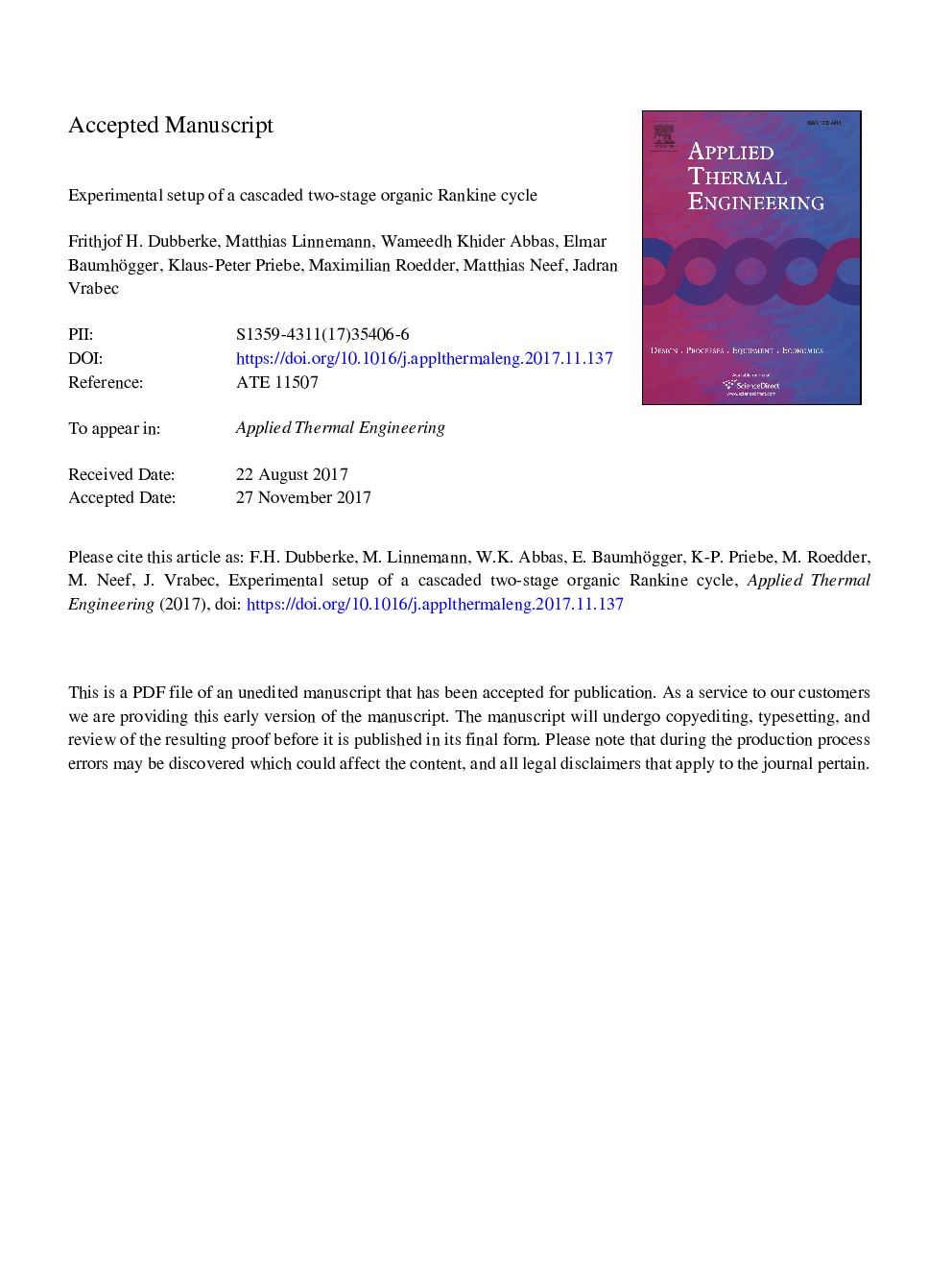| Article ID | Journal | Published Year | Pages | File Type |
|---|---|---|---|---|
| 7046297 | Applied Thermal Engineering | 2018 | 9 Pages |
Abstract
In combination with a bottoming cycle, operated with a pure fluid in transcritical mode, the usage of a zeotropic mixture as a working fluid appears to be exergetically favorable for power cycle efficiency in cascaded two-stage organic Rankine cycles (CORC). A CORC is set up and initially tested with cyclopentane and propane as working fluids in its high temperature and low temperature cycle, respectively. A thermal oil cycle serves as the heat source and is powered electrically with a maximum heat flow of 158â¯kW. The design of this experimental setup allows for a rapid replacement of individual components and for a wide range of conditions in terms of fluids and thermodynamic states. The components of all cycles and the measurement and control technology are described in detail. A testing procedure is presented, followed by a discussion of the measurement results, where it is shown that the intended concept of two cascaded organic Rankine cycles is operational and that the measured data are consistent.
Related Topics
Physical Sciences and Engineering
Chemical Engineering
Fluid Flow and Transfer Processes
Authors
Frithjof H. Dubberke, Matthias Linnemann, Wameedh Khider Abbas, Elmar Baumhögger, Klaus-Peter Priebe, Maximilian Roedder, Matthias Neef, Jadran Vrabec,
